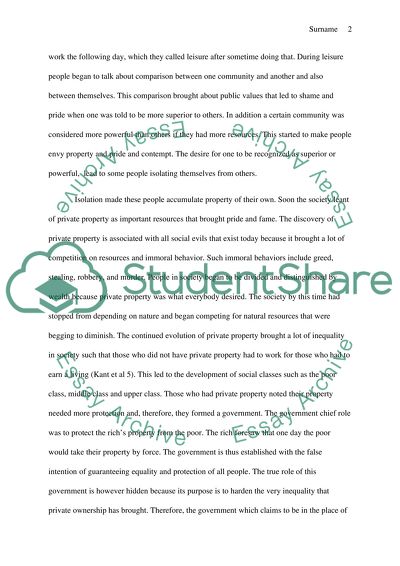Cite this document
(“Rousseau:Discourse on the origin of inequality and Kant-Perpetual Essay”, n.d.)
Retrieved from https://studentshare.org/philosophy/1496661-rousseau-discourse-on-the-origin-of-inequality-and
Retrieved from https://studentshare.org/philosophy/1496661-rousseau-discourse-on-the-origin-of-inequality-and
(Rousseau:Discourse on the Origin of Inequality and Kant-Perpetual Essay)
https://studentshare.org/philosophy/1496661-rousseau-discourse-on-the-origin-of-inequality-and.
https://studentshare.org/philosophy/1496661-rousseau-discourse-on-the-origin-of-inequality-and.
“Rousseau:Discourse on the Origin of Inequality and Kant-Perpetual Essay”, n.d. https://studentshare.org/philosophy/1496661-rousseau-discourse-on-the-origin-of-inequality-and.


